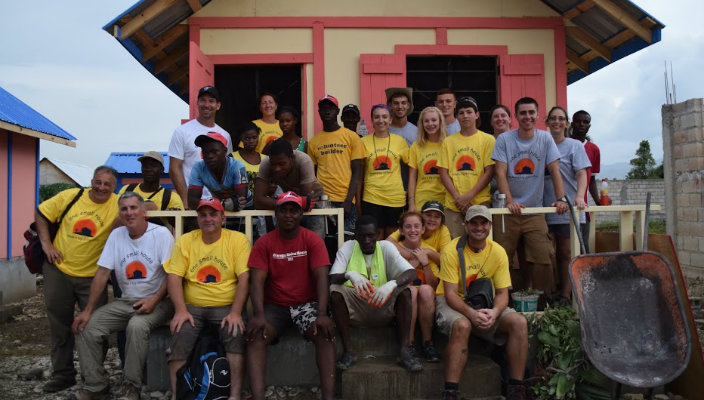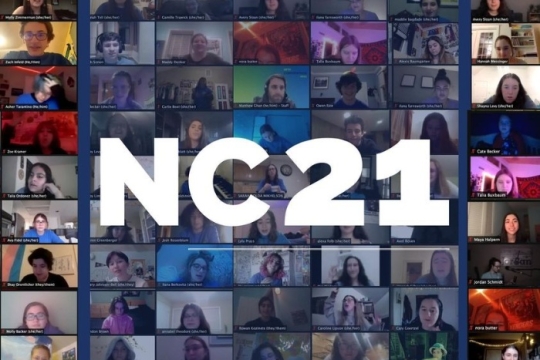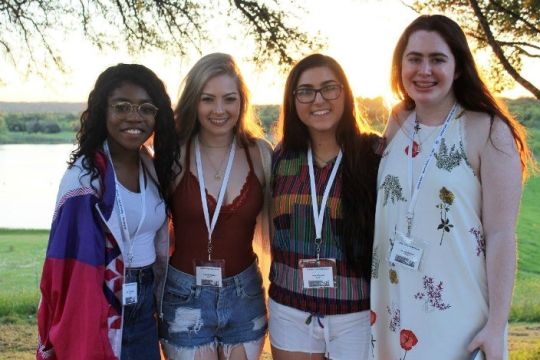
In 1949, Joseph Campbell, a professor of literature at Sarah Lawrence College, wrote a book titled The Hero with a Thousand Faces, in which he postulated a theory called the “monomyth,” or the “hero’s journey.” In studying and dissecting all the great literature from the Hebrew Bible to Native American storytelling, Arthurian legend, and Greek mythology, Campbell realized there was really only one narrative, and he described it thusly:
“The hero ventures forth from the world of common day into a region of supernatural wonder: fabulous forces are there encountered and a decisive victory is won: the hero comes back from this mysterious adventure with the power to bestow boonon his fellow man.”
Star Wars, The Matrix, Harry Potter, The Wizard of Oz: Even in our contemporary media, the hero’s journey is a constant thread. But the amazing thing about Campbell’s revolutionary postulation is that it’s not just a pattern or an algorithm that applies to the greatest works of fiction ever written; it can be the reality for us as well. Each of us, to some extent, is on our own hero’s journey. Forced from time to time to step out of our comfort zones, called by adventure, facing obstacles and challenges, struggling to find our place. Eventually, we pray, stepping over the threshold, conquering the dragon, and returning as the hero.
My first position as a rabbi was with Hillel at Cornell University. One of my main responsibilities as a campus rabbi was to organize all the “alternative break” opportunities that Jewish Life provided for students. In this capacity, I had the chance to watch the hero’s journey play out again and again with 18- to 21-year-olds as we engaged in service all over the world.
I witnessed and participated as the experiences abroad transformed these young people, nearly all of whom came from privileged backgrounds. I saw the light bulbs ignite over their heads as they came to terms with the idea that privilege both empowered and obligated them to help.
This past July, as I began my fifth year as a pulpit rabbi at Congregation Beth Israel in West Hartford, CT, I led a different group of teens on our third service-learning trip to Haiti, where we built houses for families in need. There is no greater feeling than putting a power tool into the hands of a 16-year-old. In truth, this Haiti trip has been life-changing for our teens and our community as a whole, exposing both to a country known for being the poorest in the Western Hemisphere.
I know many of my colleagues bring their students to places where the needs are great. American cities like New Orleans or countries like Costa Rica, where safety is of less concern and an industry of tourism is present. I know the work that our young people do in these places is invaluable and the experiences they have are incredibly transformative. But Haiti is a slightly different ball game. In this country where 60% of people live in poverty (less than $2 a day) and more than a ¼ of the island’s population lives in extreme poverty (less than $1 a day), there is no escaping the penetrating need. There is no comfortable hotel to return to at night, no grocery store to buy American favorites throughout the day. The work is all-consuming and the drive to do something, anything, to help improve the lives of the people who live there is equally intense.
In addition to studying the Jewish values behind our work on a daily basis, my students and I spent our afternoons and evenings discussing privilege guilt and unpacking their spiritually troubling realizations of how others must live. We resolved conflicts that came up on the worksite and compared aching bones, muscles, and joints. They were proud when they handed over the keys of the homes they spent a week building to our recipients. Knowing how drastically different four walls, a roof, and a cement floor will be, compared to where those families came from. They were all the more proud to invite our recipients to share the experience of Shabbat with them. Many of the students learned for the first time what a day of rest after a week of work really means.
These are the stories they bring home. These are the collective experiences that our entire synagogue community shares in and rallies around each summer. At no point in one’s development is the hero’s journey more relevant, and more necessary, than in adolescence. Our teens inherently feel the call to venture out and try something new. They need the experiences of trials and tribulations, of confronting their own demons and encountering others very different from themselves. These things help them become the people they are meant to be, and when these experiences occur within Jewish context, they are transformed into the heroes, the mensches, we want them to be.
Congregation Beth Israel partners with two incredible organizations to make its service learning trip happen. Check them out online at www.onesmallhouse.org and www.littlefootprintsbigsteps.com. Want to take your teens on a hero’s journey? Contact Rabbi Dena Shaffer for tips on how to make your own service learning trip happen, or to join our team in Haiti.
Rabbi Dena Shaffer is the associate rabbi at Congregation Beth Israel in West Hartford, CT, where she enjoys the frequent opportunities to “get under the table” and dream up new ways to engage Reform Jewish youth. When she’s not in Connecticut, she can be found in Haiti with teens from her congregation or training young Jews in the art of self-defense in her weekly “JewDo” class.
Related Posts

Connecting During COVID: NFTY Convention 2021

"Like Dawn Skimming the Horizon": Riding the Changes in NFTY (Part 2)

